What are AV receivers and how to choose them?
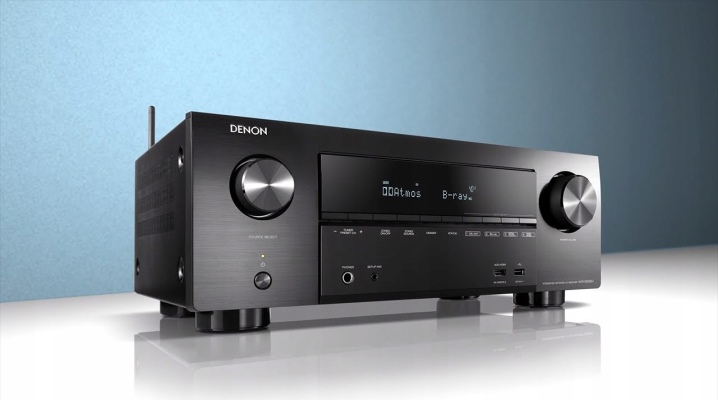
To maintain high quality audio in a home theater, you need a special device that will ensure the formation of a correct sound picture, as well as amplify it to a comfortable level without any interference and distortion. You can use a soundbar for this, which allows you to significantly improve the sound quality in comparison with a conventional TV, but if you want to create a truly high-quality system, you cannot do without an integrated AV receiver.
In our review, we will analyze in detail what this device is, what its purpose is, and how to choose the right model.
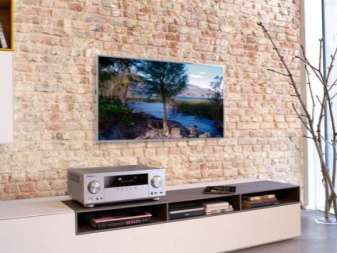
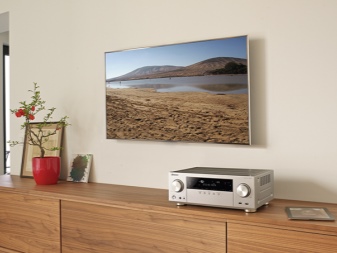
What it is?
An AV receiver is one of the most complex parts of a home theater system, designed to perform a wide variety of functions. The term “receiver” (in other words, “receiver”) appeared for the first time in the 1920s to denote a combined device that combined the capabilities of both a radio receiver and an amplifier.
With the development of digital technologies, the prefix AV was added to the name - it means audio Video, accordingly, the receiver itself was reincarnated as an audiovisual receiver and began to be used in the production of home theaters.
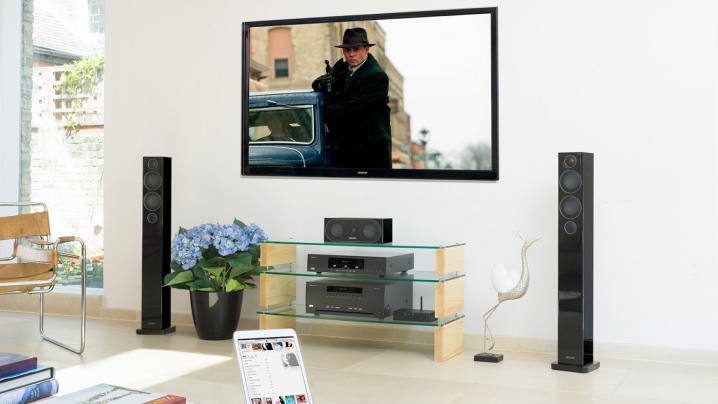
The design of any receiver includes:
- digital tuner module;
- preamplifier;
- multichannel decoders for signal sources that have more than two channels of audio data;
- switcher of audio and video signals;
- a control module responsible for displaying and processing signals from the remote control or from the front panel of the device;
- power unit.
The presence of all these elements determines the transformation of the AV receiver into a complete home theater system.
That is why it is considered one of the main components of the installation, along with the means of reflecting audio content.
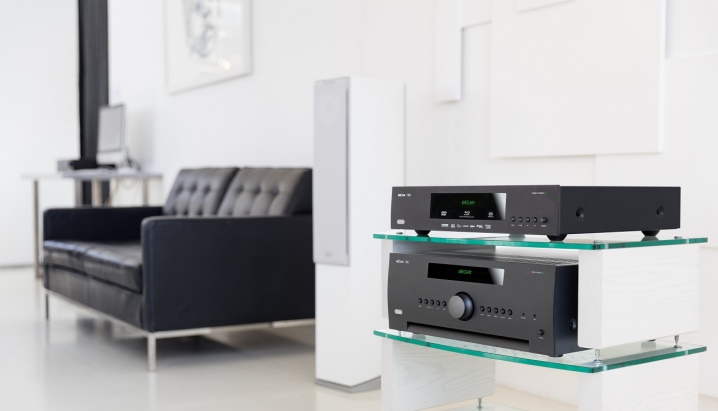
What is it needed for?
The functional features of the AV receivers are truly impressive.
- Large selection of various tuner settings. Using a microphone, the system automatically detects parameters such as:
- column sizes;
- the degree of their remoteness from the source;
- volume indicators for each signal;
- cut the low frequencies for the subwoofer.
In the most expensive models, this option allows you to additionally correct the amplitude-frequency parameters of the room in which the system is installed, to read its acoustic characteristics and, adjusting to them, to obtain high quality sound reproduction.
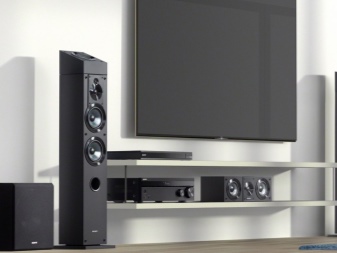
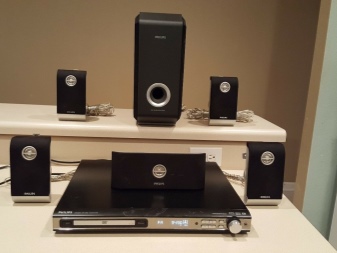
- Spatial sound of multimedia content... Digital decoders allow you to decompose a multi-channel sound design to use all your speakers. The video converter provides the conversion of S-Video, as well as composite video signal to component, or converting any type of analog signals to digital HDMI. Thus, when connecting the AV receiver to a personal computer, DVD and Blu-ray, as well as video consoles, cameras and Media Player, you can use a single HDMI cable to obtain a high-quality image. However, it should be borne in mind that this option is more typical for the latest models of the high price group.
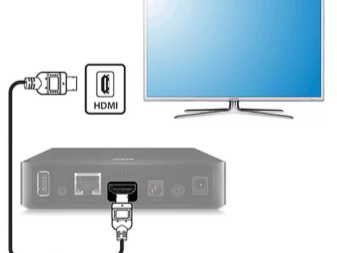
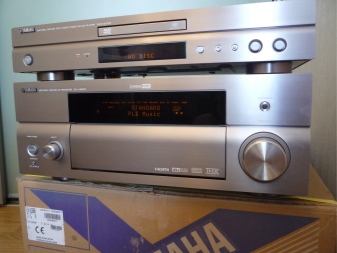
- An analog connection to an external decoder to receive incoming signals. A remote control that allows you to control all the components of your multimedia system with one device. This option is also typical of the most expensive AV receiver models.
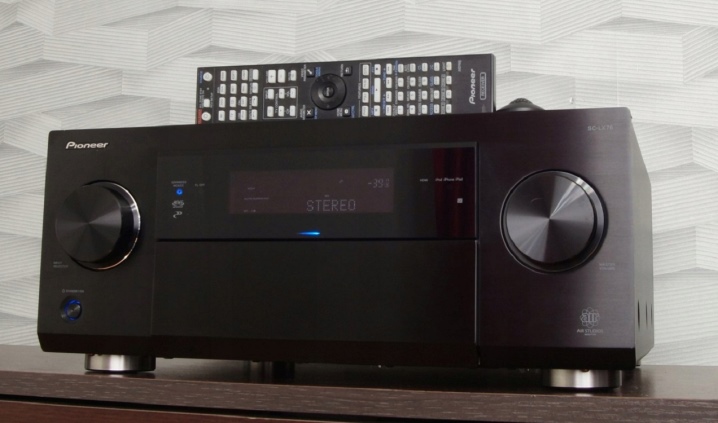
- Support for additional zones, for example, connecting a second stereo acoustic system in case you need to watch a movie or listen to music in another room.
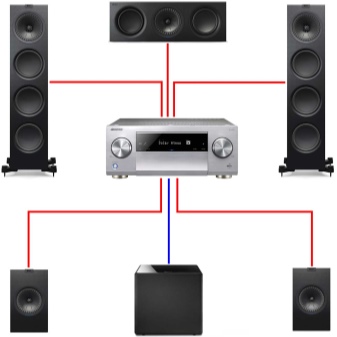
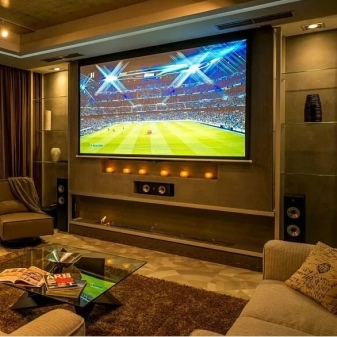
Rating of the best models
Today's industry offers the broadest selection of AV receivers. Let's dwell on the top 3 most popular models.
Yamaha RX-V485 5.1
If you describe this system briefly, then you can keep within two words - cheap and reliable. When getting acquainted with such a device, each user immediately has a natural question - is it really possible to get high sound quality for such a low cost. However, a more detailed study of the capabilities of this adaptation completely dispels all doubts.
Powered by a high-power Cinema DSP 3D processor, the design includes YPAO, which automatically adjusts and calibrates acoustic parameters using a connected microphone.
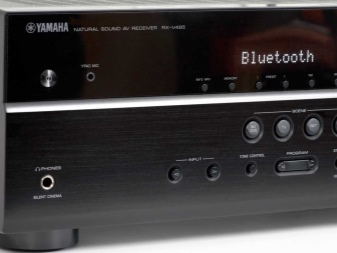
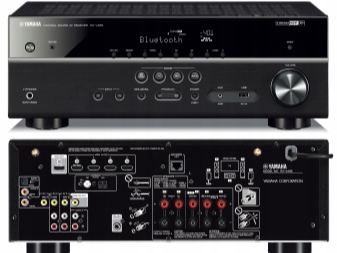
The advantages of the models include:
- low level of sound distortion when operating on two channels of 80 W each - this parameter does not exceed 0.09%;
- good compatibility with wireless systems such as MusicCast 20 and MusicCast 50;
- built-in voice assistant Amazon Alexa;
- support for most additional streaming services.
However, it was not without its drawbacks - in particular, users note low output power.
The receiver is optimal for users who plan to move from the flat sound of their TV to a qualitatively new level of sound reproduction at a reasonable cost.
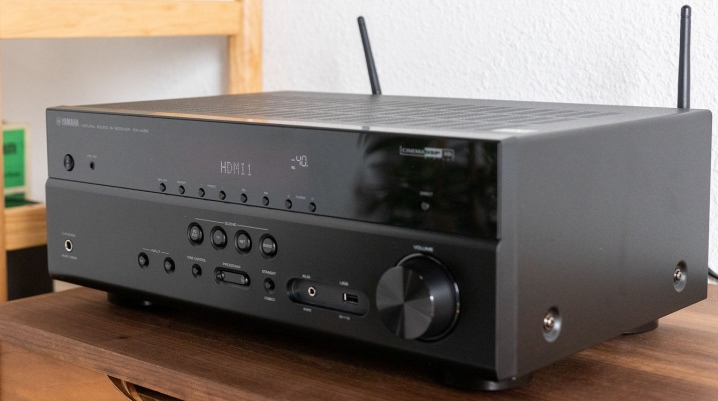
Arcam AVR 390 7.1
This 7-channel model of AV-receivers is positioned by its creators as a product for true audiophiles who are able to appreciate the real realism of the music being played and Hi-Fi sound when playing audio files.
In the middle of the front panel of the bulky body there is a volume control knob, at the bottom there is a display - on either side of this knob you can see the source selection buttons. In order to connect to acoustic installations, construction includes 7 screw terminals.
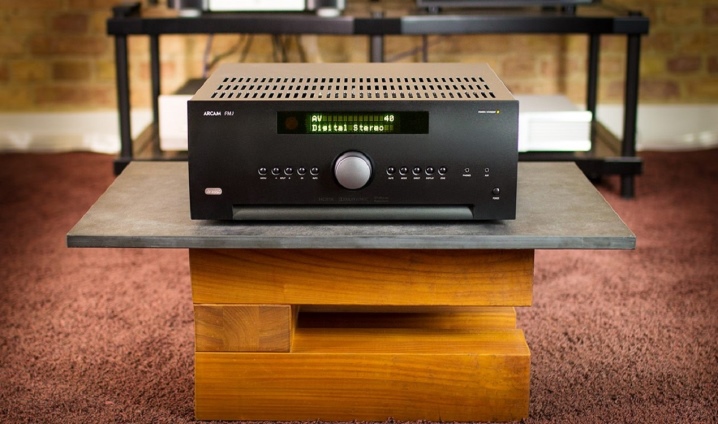
Among the advantages of the equipment are:
- exceptionally high quality video and audio playback;
- support for 4K formats, as well as Dolby Atmos and DTS: X;
- the use of the Dirac Live system, which allows you to adjust the acoustic parameters;
- the ability to control iOS devices using the application.
Of the minuses, it can be noted:
- lack of support for the Auro-3D format;
- the complexity of setting up Dirac Live.
In general, this receiver is equipped with full functionality, thanks to which it can provide the highest quality sound reproduction.
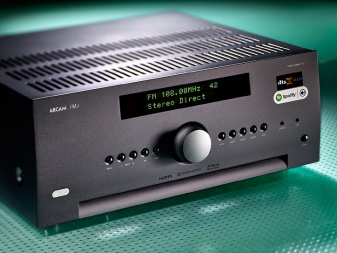
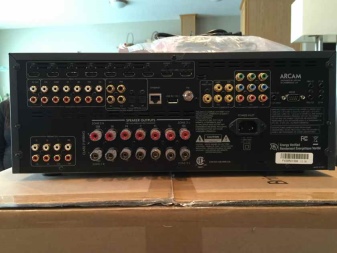
Onkyo TX-RZ830 9.2
This 9-channel receiver belongs to the segment of expensive and prestigious electrical engineering, designed not only for a demanding, but also a very wealthy user.
The device offers 4K and HDR pass-through, supports Dolby Atmos and DTS, includes its own built-in Google Chromecast, and 40 FM / AM presets.
The sound quality is confirmed by the THX Certified Select certificate, which means that the system has passed rigorous testing of all technical and operational parameters.
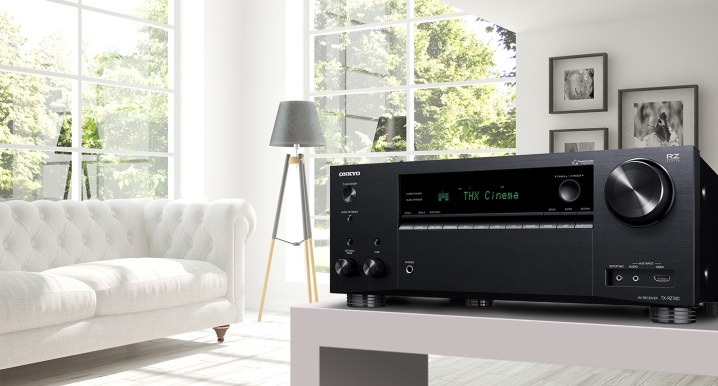
The advantages of the model:
- the effect of full presence when listening to melodies or watching movies;
- natural and natural sounding of musical instruments and sounds of wildlife;
- a high degree of compatibility with the vast majority of sound platforms;
- the ability to create a multiroom system.
Among the disadvantages are:
- lack of Audyssey support;
- Wi-Fi starts to fall off from time to time.
The creators of such a receiver managed to fully implement a top-end digital architecture with significant output currents. Thus, the quality of the audio and video produced by this device is exceptionally high. All previous receivers in this price range provide less clear audio and video sequences.
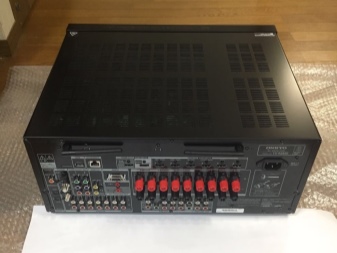
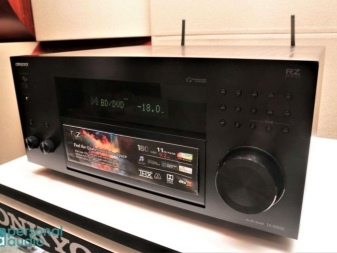
Criterias of choice
The capabilities of modern AV-receivers produced by the largest manufacturers these days are rather difficult to highlight. That is why different models do not have obvious advantages that could be decisive when choosing a particular device. In any receivers, it is better to identify the distinctive features that could be based on when choosing the optimal model.
Multichannel audio decoder
When selecting a receiver you need to pay attention to the support, since this will largely depend on the volumetric spatial effect of the audio accompaniment of movies. A good receiver should handle all existing audio coding standards, otherwise the work may not work correctly. For example, if the decoder does not have the ability to contact the DTS signal, you simply will not be able to watch movies recorded in this format. This can only be done if you purchase an optional external DTS decoder. That's why When buying an AV receiver for home theater, you should pay attention to the presence of decoders for standard digital formats.
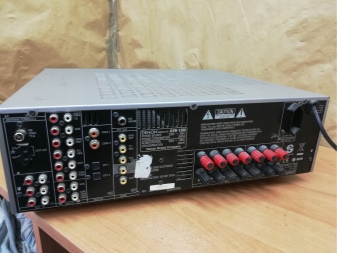
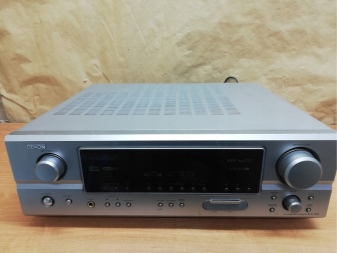
Interfaces
The HDMI interface is considered universal, today it belongs to the standards and is available in almost all models. The HDMI receiver provides multifunctional full connectivity to the following port types:
- Blu-ray player;
- DVD player;
- game console;
- satellite receiver;
- PC or laptop.
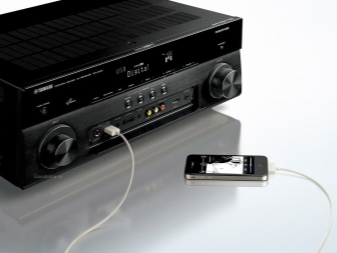
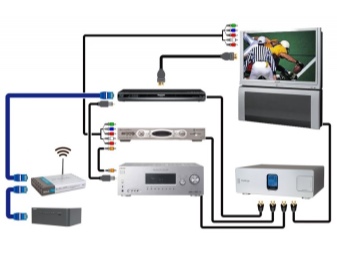
If you took a couple of devices for display, for example, a TV and a projector, then the best option for you would be the presence of an HDMI output, as well as a USB or mini-HDMI port.
This will greatly simplify the connection, as well as the further broadcast of multimedia files from any mobile device.
Coaxial and optical connectors provide efficient connectivity to your CD player as well as your computer's audio card.
Do not forget about popular network interfaces such as Wi-Fi, as well as the Internet and DLNA., thanks to which maximum freedom in organizing a multicommunity is provided.


Useful functions
The vast majority of receivers can process incoming video signals: both analog and digital, including 3D. This option will be useful if you intend to play 3D content from devices connected to the receiver. Do not forget that all available devices support the HDMI version.
Almost any installation these days provides HDMI 2.0 switching capability with 3D support at 4K resolution, can convert video signal to digital format and scales the picture up to 4K. This feature is called upscaling and allows you to watch low-definition video on a high-definition display.
For novice users, the AV receiver model will certainly be useful, which provides its own auto-tuning system using a measuring microphone.
Equally useful when using the AV receiver will be the presence of a graphical user menu, which is displayed, as well as the learning remote control, which has its own memory for macro commands.
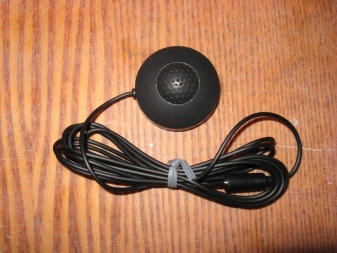
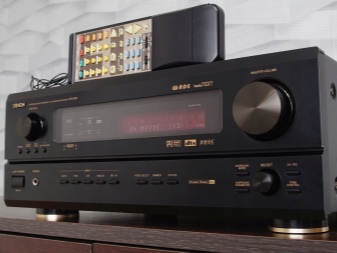
Amplifier
Here the principle of operation is very simple: the more power consumed, the more efficiently the amplifier will work. However, do not forget that too high power parameters are just as dangerous as insufficient ones. A suitable value for a room of 20 sq. m will be considered a receiver of 100 W for each channel, for small halls you can limit yourself to compact mini-receivers of low power. The perception of the audio sequence largely depends on the output characteristics of this device; it is important that the power is equally distributed across all channels.
When choosing a suitable receiver, you need to pay special attention to the equality of the power parameters of the front and rear speakers.
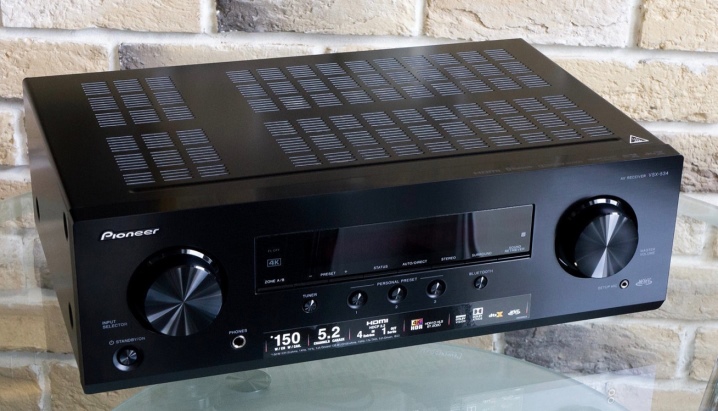
User manual
If you have found an AV receiver for your home that fully meets your needs and capabilities, then you need to start connecting sources.On the back cover of any receiver there is a panel of connectors, their number and variety can frighten an inexperienced user. However, if you only spend time on the connection once, then in the future you will no longer have to contact them.
Turn off the unit before connecting the subwoofer, speakers and sources. - in this way you can avoid loud clicks, as well as short circuits and some other malfunctions. Almost all inputs in modern receivers are signed, some models have digital coding, which greatly facilitates the process of connecting several speakers. So, in some models, the inputs contain a reference to the source: Blu-ray, DVD, CD, game console, as well as cable / satellite, media player, and so on. This means that the manufacturer has optimized the performance parameters of these inputs to receive the signal from each specific source.
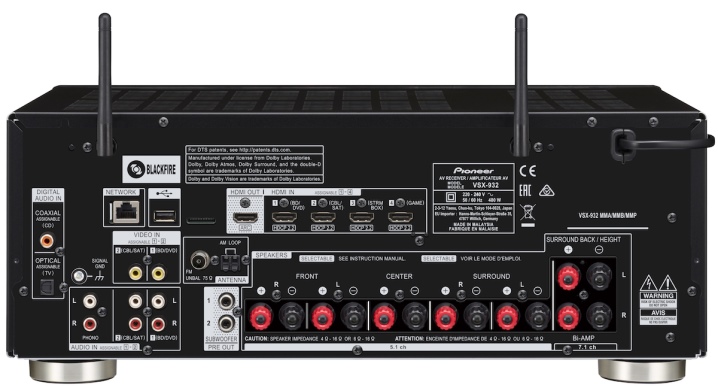
If you plan to play audio and video content in 4K HDR format, then you need to use an interface marked HDCP2.2... Some models have only a pair of HDMI ports certified, in which case you need to connect your 4K Blu-ray player to it.
There are 2 more ways to set up a connection... The first is to use a wired internet connection. This method is considered more reliable and stable compared to Wi-Fi or Bluetooth.
And it is also possible to connect via a USB port. It is usually used to charge smartphones, but if you want, you can use it to play audio and video files from a USB flash drive.
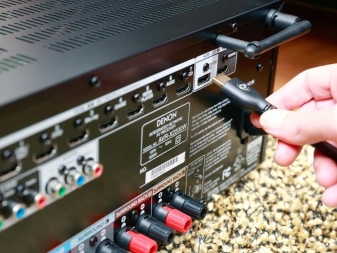
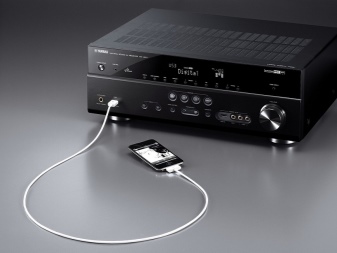
In conclusion, we will give several recommendations that will allow you to significantly extend the operating period of your receiver:
- avoid getting water on the device;
- regularly clean the equipment from dust and dirt, as, getting inside, they cause a short circuit;
- if power surges occur frequently in your area, then take care of a stabilizer that will protect the device from burnout.

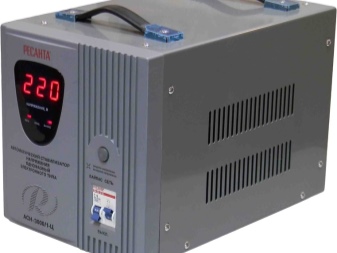
For how to choose an AV receiver for your home theater, see the following video.











The comment was sent successfully.